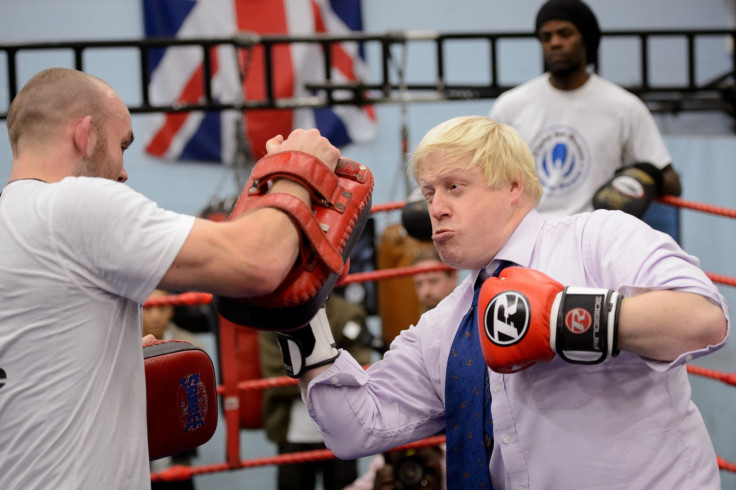Boris Johnson could ruin Britain's global relationships
The job of foreign secretary requires incessant wooing – one gaffe could undo years of diplomatic progress.
Within hours of taking office, the UK's new prime minister Theresa May picked one of the most undiplomatic people in modern British politics to serve as the UK's diplomat-in-chief. The surprise announcement that former London mayor Boris Johnson is now Britain's representative on the global stage as foreign secretary is helpful to bridging domestic political divides. But it could be extremely harmful for Britain's global relationships.
May will accomplish two major goals in making this appointment. She has secured some serious political cover within the Conservative Party and outside. The pro-Brexit elements of her party and the 17 million people who voted for Britain to leave the European Union are sceptical that a tepid Remain campaigner such as May can lead the UK to a real divorce with the EU. While Johnson won't be in charge of Brexit negotiations, his place in one of the UK's top jobs is a symbolic olive branch to die-hard Leavers.
Second, it sends a very clear signal to the British political establishment – and the world. This government is not simply going to be a female version of David Cameron's administration. The choices made in this cabinet reshuffle amount to a massive political aftershock, the unsettling tremors that somehow keep reverberating in the wake of the political earthquake that was Brexit.
But these domestic political calculations come with an international cost that is too much for a country in crisis to bear. The job of foreign secretary requires incessant wooing and May has given it to someone who is far better known for hurling one-liners, zingers, and insults at world leaders.
Take just two key examples: Hillary Clinton and Turkish president Recep Tayyip Erdoğan.
Johnson has previously said that Clinton has "dyed blonde hair and pouty lips, and a steely blue stare, like a sadistic nurse in a mental hospital". And, beyond that unflattering portrayal of her personal appearance, he has also made a sexist jibe at her leadership, saying: "It is time to think of supporting Hillary, not because we necessarily want her for herself but because we want Bill in the role of First Husband. And if Bill can deal with Hillary, he can surely deal with any global crisis."
You can rest assured that Clinton will be well aware of those comments, and if she wins in November, the special relationship between the UK and the US will start off as a very "special" one indeed.
The job of foreign secretary requires incessant wooing and May has given it to someone who is far better known for hurling one-liners, zingers, and insults at world leaders
Johnson was even more offensive when it came to Erdoğan, a man who is simultaneously an authoritarian despot and a critical Nato ally. He won £1,000 ($1,333) in a competition run by the Spectator magazine (which he himself once edited) to find the most offensive poem that could be written about the Turkish president by penning a not-fit-to-print limerick involving Erdoğan and a goat.
Unfortunately, Erdoğan is in charge of a country that is a lynch pin of international security, particularly as Europe – and the UK – grapples with a refugee crisis and the ongoing, devastatingly bloody war in Syria.

And while Clinton may generously shrug off Johnson's comments as light-hearted humour from a staunch ally, Erdoğan has a history of jailing journalists for even minor insults. It was telling, in fact, that the Turkish media coverage of the British cabinet reshuffle made no reference to the limerick. It wasn't because they were unaware; it was because they can't get away with insulting the Turkish president. And, unfortunately, Johnson will probably find himself in a similarly delicate position as he tries to navigate one of the trickiest relationships in global diplomacy.
That, ultimately, is the bottom line with Johnson as foreign secretary. He is a man who has tremendous wit and intellect but lacks diplomacy. He may be able to handle chums from similar backgrounds but now he's going to be flung into a world where he has to glad-hand and charm heads of state from Myanmar to Madagascar. Those relationships have been carefully cultivated by Johnson's predecessors for decades, but a single misspoken gaffe could undo years of diplomatic progress in a few careless seconds.
May was bold in picking Johnson. She threw an important political bone to the people who disagreed with her that Britain was stronger as part of the European Union. And she distanced herself from her predecessor by taking a drastically different direction with her cabinet
May was bold in picking Johnson. She threw an important political bone to the people who disagreed with her that Britain was stronger as part of the EU. And she distanced herself from her predecessor by taking a drastically different direction with her cabinet. But the decision shows that there is in fact some continuity from Cameron to May – the new prime minister is clearly willing to gamble with high stakes in order to try to make her life easier in Britain's domestic politics.
Cameron did exactly the same when he put his political life on the line by offering a referendum on EU membership to calm elements within his own party. He lost and has paid an enormous price.
Let's hope, for the sake of Britain's standing in the world, that May has better luck with the risky choice of Boris Johnson.
Brian Klaas, LSE Fellow in Comparative Politics, London School of Economics and Political Science
This article was originally published on The Conversation. Read the original article.

© Copyright IBTimes 2025. All rights reserved.






















